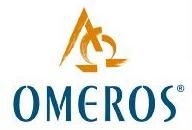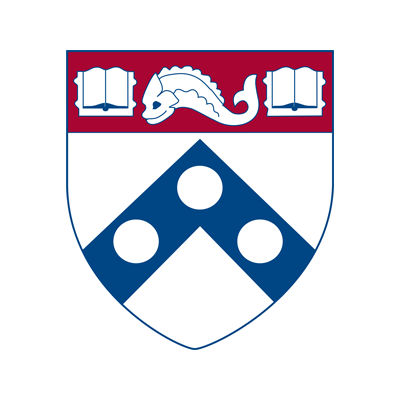预约演示
更新于:2025-05-07
COX-1 x COX-2
更新于:2025-05-07
关联
41
项与 COX-1 x COX-2 相关的药物作用机制 COX-1抑制剂 [+2] |
在研适应症 |
非在研适应症 |
最高研发阶段批准上市 |
首次获批国家/地区 西班牙 |
首次获批日期2015-12-20 |
作用机制 ADRA1激动剂 [+2] |
原研机构 |
最高研发阶段批准上市 |
首次获批国家/地区 美国 |
首次获批日期2014-05-30 |
2,351
项与 COX-1 x COX-2 相关的临床试验NCT03590821
Modulating Celecoxib Induced Blood Pressure Changes by Timed Administration of Aspirin and the Human Chronobiome
To determine whether timed administration of aspirin ameliorates the effects of celecoxib on blood pressure.
开始日期2026-12-01 |
申办/合作机构 |
NCT03176498
The Effects of Human Umbilical Cord Mesenchymal Stem Cell Therapy on Neurological Function for Cerebral Infarction Patients in Convalescent Period.
This is a randomized, double-blind study. Human umbilical cord mesenchymal stem cells (hUC-MSC) will be treated on cerebral infarction patients, and evaluates their neurological function of convalescent period.
开始日期2025-12-31 |
申办/合作机构 |
100 项与 COX-1 x COX-2 相关的临床结果
登录后查看更多信息
100 项与 COX-1 x COX-2 相关的转化医学
登录后查看更多信息
0 项与 COX-1 x COX-2 相关的专利(医药)
登录后查看更多信息
7,283
项与 COX-1 x COX-2 相关的文献(医药)2025-08-01·Parasitology International
Morphology, genetic characterization and molecular phylogeny of Xystrognathus priscus (Nematoda: Rhigonematomorpha)
Article
作者: Li, Liang ; Xu, Hong-Ru
2025-08-01·Tissue and Cell
Apigenin improves chronic gastric ulcer in rats: The implication of COX-1/2 and 5-LOX signaling pathways
Article
作者: Nasr El-Din, Wael Amin ; Abdel Fattah, Islam Omar
2025-06-01·Biochimica et Biophysica Acta (BBA) - Molecular Basis of Disease
Nitrovanillin derivative ameliorates AGE-RAGE nexus associated inflammation: A step towards the amelioration of vascular complications under diabetic environment
Article
作者: Tufail, Priya ; Choudhary, M Iqbal ; Jahan, Humera ; Pizzi, Marina ; Siddiqui, Bina Shaheen ; Anjum, Sajjad
43
项与 COX-1 x COX-2 相关的新闻(医药)2025-03-07
3月6日,中国生物制药发布公告,集团与南京清普生物就其研发的国家2类新药QP001在中国大陆地区达成独家合作协议。预计该产品将于近期获国家药监局批准上市。
QP001是目前唯一一款注册分类为国家2类新药的美洛昔康注射液,是一种长效、强效的针对术后疼痛的新型非甾体抗炎药(NSAID),已在中国和美国申报上市。
相较于传统非选择性NSAIDs,QP001是一种选择性环氧合酶-2(COX-2)抑制剂,通过抑制炎症和疼痛部位上调的COX-2活性,减少或阻断患处前列腺素(PGs)的合成,从而起到抗炎和镇痛的作用,且对广泛表达于人体各种组织并对维持正常生理功能起重要作用的环氧合酶-1(COX-1)影响较小。
QP001单次注射即可实现24小时的持续强效镇痛,是中国首款一日一次的长效镇痛NSAID注射液。两项III期临床研究显示,QP001在药效末期(即18-24小时)仍可保持显著镇痛效果。目前临床常用于术后镇痛的注射药物需要一日多次注射,或通过留置导管持续给药。
QP001可以有效解决给药间隙疼痛的问题,尤其是术后住院过程的夜间疼痛,从而显著提升患者的依从性、节约医护资源。同时,QP001安全性优,未来轻度肾功能损伤患者、老年患者等特殊人群也可正常使用。
两项III期临床研究显示,QP001可以显著降低骨科和腹部手术后受试者的吗啡使用量和疼痛评分。在骨科手术受试者中,QP001组在整个研究期间(48小时内)相比安慰剂组显著降低吗啡用量56.3%;在腹部手术受试者中,QP001组在整个研究期间(48小时内)相比安慰剂组显著降低吗啡用量46.0%。
与同类已上市NSAIDs品种说明书中注明的临床试验期间相比安慰剂降低吗啡用量比例相比,QP001降低吗啡用量的比例最高,有成为镇痛效果最强的NSAIDs的潜力。
内容来源于网络,如有侵权,请联系删除。

上市批准申请上市
2025-03-07
·医药地理
3月6日,中国生物制药(1177.HK)宣布,与南京清普生物科技有限公司(清普生物)就其研发的国家2类新药QP001在中国大陆地区达成独家合作协议。该产品是一种针对术后疼痛的新型非甾体抗炎药(NSAIDs),此前已在中国和美国申报上市,预计将于近期获中国国家药品监督管理局(NMPA)批准上市,有望成为中国首款一日一次的长效镇痛NSAIDs注射液。
长效镇痛 提高患者依从性
QP001是目前国内唯一注册分类为国家2类新药的美洛昔康注射液。作为一种选择性环氧合酶-2(COX-2)抑制剂,QP001能够阻断引发身体疼痛和炎症的COX-2的释放,同时对环氧合酶-1(COX-1)影响较小,从而减轻胃肠道、血小板抑制等副作用。当前,临床常用于术后镇痛的注射药物半衰期普遍偏短,往往需要一日多次注射或通过留置导管持续给药。QP001的半衰期长达18-22小时,24小时的长效镇痛特性有望突破传统给药间隙的镇痛瓶颈,缓解夜间疼痛发作,进而改善患者治疗依从性。
强效镇痛 潜在镇痛效果最强的NSAIDs
QP001有成为镇痛效果最强的NSAIDs的潜力。两项QP001的Ⅲ期临床结果显示,QP001可以显著降低骨科和腹部手术后受试者的吗啡使用量和疼痛评分。在骨科手术受试者中,QP001组在整个研究期间(48小时内)相比安慰剂组显著降低吗啡用量56.3%;在腹部手术受试者中,QP001组在整个研究期间(48小时内)相比安慰剂组显著降低吗啡用量46.0%。与同类已上市NSAIDs品种说明书中注明的临床试验期间相比安慰剂降低吗啡用量比例相比,QP001降低吗啡使用量的比例最高。
填补术后未满足镇痛需求
术后疼痛是患者术后最关心的问题之一,急性术后疼痛一般在术后即刻发生,处理不当会转化为慢性术后疼痛(CPSP),严重影响患者的生活质量和术后康复。据统计,住院手术患者的术后疼痛发生率高达91.8%,其中79.1%的患者经历了中度、重度或极重度疼痛。2022年,中国住院病人手术人次超过8200万,但镇痛不足现象仍然普遍。《围术期目标导向全程镇痛管理中国专家共识(2021版)》显示,我国三级甲等医院有效镇痛率仅约30%,QP001将有望解决术后镇痛领域巨大的未被满足的临床需求。
外科/镇痛是中国生物制药四大战略领域之一,核心科室包括麻醉科、骨科、外科和疼痛科,已上市的重磅镇痛产品包括氟比洛芬凝胶贴膏、氟比洛芬酯注射液、利多卡因凝胶贴膏、利马前列素片等。为不断拓展在镇痛领域市场的深度和广度,推动在该领域的高质量、可持续发展,公司积极推进产品研发及BD合作。QP001有望接力氟比洛芬酯注射液 (商标名:凯纷®) 成为中国生物制药镇痛领域的下一款重磅产品,公司将依托强大的商业化能力,全力提升药物可及性,惠及更多疼痛患者。
来源:正大制药订阅号
END
如需获取更多数据洞察信息或公众号内容合作,请联系医药地理小助手微信号:pharmadl001
临床3期临床结果上市批准
2025-03-07
·微信
3 月 6 日,中国生物制药发布公告,称其已与清普生物就 2 类新药 QP001 在中国大陆地区达成独家合作协议。该产品已在中国和美国申报上市,有望成为国内首款每日一次的长效镇痛新型非甾体抗炎药(NSAIDs)注射液。
来源:中国生物制药公告
QP001 是国内唯一一款注册分类为 2 类新药的美洛昔康注射液。作为一种选择性 COX-2 抑制剂,QP001 能够阻断引发身体疼痛和炎症的 COX-2 的释放,同时对 COX-1 影响较小,从而减轻胃肠道、血小板抑制等副作用。QP001 的半衰期长达 18-22 小时,具有 24 小时的长效镇痛特性。
新闻稿显示,QP001 具有成为镇痛效果最强 NSAIDs 的潜力。QP001 的 2 项 Ⅲ 期临床结果显示,QP001 可以显著降低骨科和腹部手术后受试者的吗啡使用量和疼痛评分。
在骨科手术受试者中,QP001 组在整个研究期间(48小时内)相比安慰剂组显著降低吗啡用量 56.3%;在腹部手术受试者中,QP001 组在整个研究期间(48小时内)相比安慰剂组显著降低吗啡用量 46.0%。
与同类已上市 NSAIDs 品种说明书中注明的临床试验期间相比安慰剂降低吗啡用量比例相比,QP001 降低吗啡使用量的比例最高。
识别微信二维码,添加生物制品圈小编,符合条件者即可加入
生物制品微信群!
请注明:姓名+研究方向!
版
权
声
明
本公众号所有转载文章系出于传递更多信息之目的,且明确注明来源和作者,不希望被转载的媒体或个人可与我们联系(cbplib@163.com),我们将立即进行删除处理。所有文章仅代表作者观不本站。
临床3期临床2期申请上市
分析
对领域进行一次全面的分析。
登录
或

生物医药百科问答
全新生物医药AI Agent 覆盖科研全链路,让突破性发现快人一步
立即开始免费试用!
智慧芽新药情报库是智慧芽专为生命科学人士构建的基于AI的创新药情报平台,助您全方位提升您的研发与决策效率。
立即开始数据试用!
智慧芽新药库数据也通过智慧芽数据服务平台,以API或者数据包形式对外开放,助您更加充分利用智慧芽新药情报信息。
生物序列数据库
生物药研发创新
免费使用
化学结构数据库
小分子化药研发创新
免费使用





